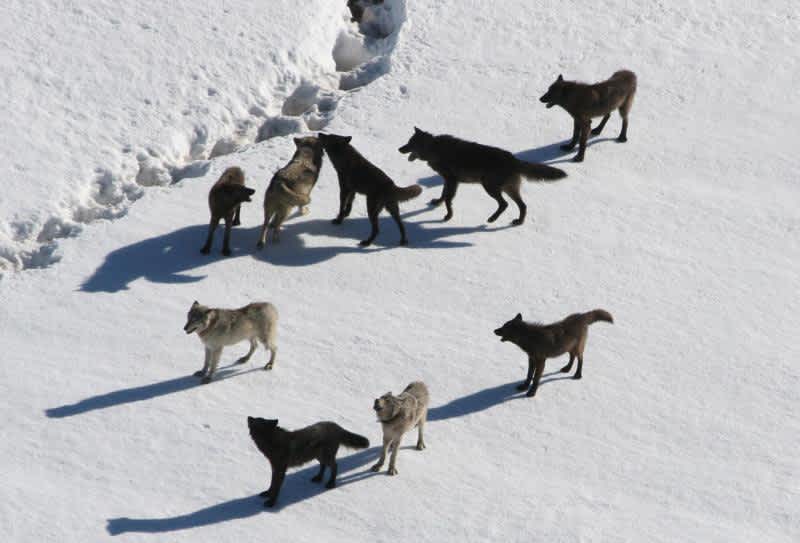Michigan DNR Fights Federal Court’s Wolf Protection Decision
OutdoorHub Reporters 02.27.15

On Friday, the Michigan Department of Natural Resources (DNR) announced that it filed an appeal in the December 2014 federal court ruling that returned the state’s wolf population back to the endangered species list. That decision, which was made by US District Judge Beryl Howell, came in response to a lawsuit filed by the Humane Society of the United States against the states of Michigan, Minnesota, and Wisconsin. All three states had their wolf populations restored to either endangered or threatened status, which effectively blocks state wildlife agencies from pursuing their current management programs.
“Returning wolf management to wildlife professionals in the state of Michigan is critical to retaining a recovered, healthy, and socially-accepted wolf population in our state,” said DNR Director Keith Creagh in a press release. “Michigan residents who live with wolves deserve to have a full range of tools available to sustainably manage that population.”
Michigan now joins the US Fish and Wildlife Service (USFWS)—which originally delisted wolves in the Great Lakes region in 2012—as well as a number of hunting and conservation organizations in fighting the court decision. State biologists argue that Michigan wolves are 15 years past the goals set by the USFWS and have sufficiently recovered to allow management practices, such as hunting. Michigan opened its first wolf hunting season in 2014, despite widespread opposition from animal rights groups.
“Wolves in Michigan and the other western Great Lakes states are fully recovered from endangered species status, which is a great success story,” said DNR Wildlife Division Chief Russ Mason. “Continuing to use the Endangered Species Act to protect a recovered species not only undermines the integrity of the Act, it leaves farmers and others with no immediate recourse when their animals are being attacked and killed by wolves.”
In the court decision, Howell ruled that the gray wolf must recover across all the states of their historic range—most of the lower 48 states—before the species can be delisted in Michigan. The judge also stated that Michigan failed to demonstrate that its laws and management practices could adequately protect wolves from slipping back into endangered status. In its appeal, the state of Michigan is expected to argue against both of these conclusions.

